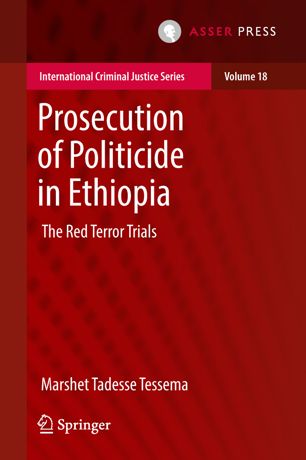

Most ebook files are in PDF format, so you can easily read them using various software such as Foxit Reader or directly on the Google Chrome browser.
Some ebook files are released by publishers in other formats such as .awz, .mobi, .epub, .fb2, etc. You may need to install specific software to read these formats on mobile/PC, such as Calibre.
Please read the tutorial at this link: https://ebookbell.com/faq
We offer FREE conversion to the popular formats you request; however, this may take some time. Therefore, right after payment, please email us, and we will try to provide the service as quickly as possible.
For some exceptional file formats or broken links (if any), please refrain from opening any disputes. Instead, email us first, and we will try to assist within a maximum of 6 hours.
EbookBell Team

4.8
24 reviewsThis book investigates the road map or the transitional justice mechanisms that theEthiopian government chose to confront the gross human rights violations perpetratedunder the 17 years’ rule of the Derg, the dictatorial regime that controlled state powerfrom 1974 to 1991. Furthermore, the author extensively examines the prosecution ofpoliticide or genocide against political groups in Ethiopia.
Dealing with the violent conflict, massacres, repressions and other mass atrocities ofthe past is necessary, not for its own sake, but to clear the way for a new beginning.In other words, ignoring gross human rights violations and attempting to close thechapter on an oppressive dictatorial past by choosing to let bygones be bygones, is nolonger a viable option when starting on the road to a democratic future. For unaddressedatrocities and a sense of injustice would not only continue to haunt a nation butcould also ignite similar conflicts in the future.
So the question is what choices are available to the newly installed government whenconfronting the evils of the past. There are a wide array of transitional mechanismsto choose from, but there is no “one size fits all” mechanism. Of all the transitionaljustice mechanisms, namely truth commissions, lustration, amnesty, prosecution,and reparation, the Ethiopian government chose prosecution as the main means fordealing with the horrendous crimes committed by the Derg regime.
One of the formidable challenges for transitioning states in dealing with the crimes offormer regimes is an inadequate legal framework by which to criminalize and punishegregious human rights violations. With the aim of examining whether or not Ethiopiahas confronted this challenge, the book assesses Ethiopia’s legal framework regardingboth crimes under international law and individual criminal responsibility.
This book will be of great relevance to academics and practitioners in the areas ofgenocide studies, international criminal law and transitional justice. Students in thefields of international criminal law, transitional justice and human rights will alsofind relevant information on the national prosecution of politicide in particular andthe question of confronting the past in general.
Marshet Tadesse Tessema is Assistant Professor of the Law School, College of Law andGovernance at Jimma University in Ethiopia, and Postdoctoral Fellow of the SouthAfrican-German Centre, University of the Western Cape in South Africa.